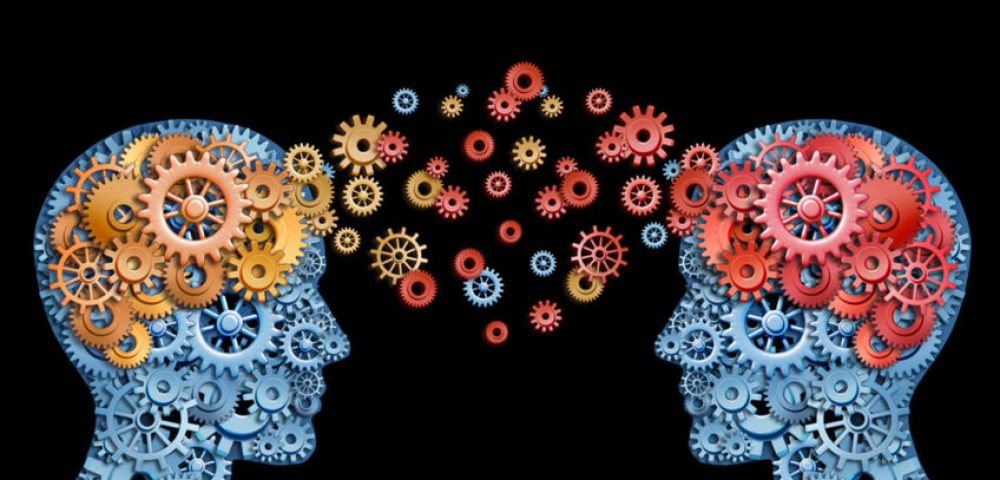Real-world perception or direct experience are the only ways that empirical knowledge may be acquired; neither abstractions nor fantasy are used. Knowledge provides us with information about the nature of the world, the objects that exist, and their traits.
This kind of information serves as the foundation for materialistic views of reality, or for people who try to deduce what exists from what exists. It is crucial for the development of the idea of science and scientific thought, as opposed to information from religion and philosophy.
Page Contents
- 1 What is empirical knowledge based on?
- 2 Empirical knowledge Characteristics
- 3 Examples of empirical knowledge
- 4 Differences in scientific knowledge
- 5 Problem-Solving Through Empirical Knowledge
- 6 Skill Development and Empirical Knowledge
- 7 Personal Growth and the Importance of Empirical Knowledge
- 8 Other types of knowledge
- 9 FAQ
- 10 Summing up
What is empirical knowledge based on?
Then there is the knowledge we gain from our senses. This understanding is based on empirical research. The best way for determining the accuracy of such knowledge is science.
Two categories of empirical knowledge exist:
- That which specifically relates to particular instances of reality without being able to guarantee that the lessons learnt apply to all instances in general.
- The contingent is when features are given to an object that may one day not have them.
Empirical knowledge Characteristics
The various authors that characterize this form of knowledge concur that its primary quality is its close connection to reality, to the world as it is experienced, and to life itself.
In this view, empirical knowledge is the processing and conversion of experience directly into knowledge rather than coming through a formative or educational process, nor from the action of a conscious and analytical reflection. The typical methods of acquisition are observation, repetition, trial, and error.
On the other hand, the acquisition of empirical information heavily relies on the senses. Something that cannot be perceived or that is so abstract that it takes mental processes beyond our five senses cannot be learned scientifically.
This reliance on sensory input for empirical understanding aligns closely with the concepts of bottom-up processing, where perception begins with the stimulus itself, offering a foundational approach to how we interpret our surroundings.
Types Empirical knowledge
One specific and the other dependent types of empirical knowledge can be distinguished. Due to the fact that it corresponds to particular circumstances or a particular reality, specific empirical knowledge is recognized.
However, it is impossible to ensure that experience-based knowledge can be universally applicable to other situations. Contrarily, contingent empirical knowledge is distinguished because it identifies attributes associated with an event. However, for a number of reasons, they might soon change.
Examples of empirical knowledge

Simple instances of empirical knowledge include:
- One of a child’s earliest lessons is to understand that fire burns, which is something that must be felt in the flesh in order to be integrated into the structured understanding of the world.
- Learn how to skateboard, ride a bike, or walk – activities that can typically only be learned via practice.
- The final element of language learning is ongoing exercise, which entails the learning of new languages, which requires rational and empirical knowledge.
Differences in scientific knowledge
Although the idea of empiricism and empirical knowledge played a crucial role in the intellectual development of the concept of science, the qualities of empirical knowledge are not the same even if they both have to do with the observation of reality.
First of all, unlike empirical knowledge, which lacks an explanation for the real world, scientific knowledge is founded on concrete hypotheses that may or may not be connected to the empirical.
In contrast, scientific knowledge must be supported by a certain strategy of examples and writings, as opposed to response to the world as it is.
For instance, we can empirically confirm that it does really rain occasionally. But knowing why it rains, how it rains, or how rain affects the hydrological cycle is scientific information. And we cannot understand the latter by ordinary experience; rather, we need specialized abstract knowledge, or scientific knowledge.
Problem-Solving Through Empirical Knowledge

Empirical knowledge plays a crucial role in our ability to solve problems effectively. When faced with a challenge, we often draw upon our past experiences and observations to find practical solutions. This involves applying what we have learned through trial and error, as well as recognizing patterns and trends that can inform our decision-making process.
For example, when troubleshooting a malfunctioning electronic device, we might rely on our empirical knowledge of similar issues we have encountered in the past. By recalling what worked (and what didn’t) in those situations, we can narrow down potential causes and solutions more efficiently.
It is also invaluable when navigating social situations and resolving conflicts. Through observation and experience, we learn how people tend to behave and react in certain circumstances. This understanding allows us to anticipate others’ needs and emotions, fostering effective communication and resolution.
Skill Development and Empirical Knowledge

Empirical knowledge is the foundation upon which many of our practical skills are built. Learning new skills often involves a combination of observation, repetition, and trial and error. This process helps us internalize the necessary techniques and strategies, eventually leading to mastery.
Take cooking, for example. As we experiment with different ingredients and cooking techniques, we gain empirical knowledge about how various elements interact, which methods produce the best results, and how to adjust recipes based on our preferences. This hands-on experience is essential for developing culinary expertise.
Similarly, when learning to play a musical instrument, empirical knowledge is gained through consistent practice and repetition. As we become more familiar with the instrument, we can better understand how to produce specific sounds and improve our technique. This experiential learning process is key to developing our musical abilities.
Personal Growth and the Importance of Empirical Knowledge
Empirical knowledge contributes significantly to our personal growth and development. As we navigate the world and accumulate new experiences, we constantly learn from our successes and failures. This process of self-improvement is driven by our ability to reflect on our experiences and integrate the knowledge gained into our future actions.
For instance, developing healthy relationships requires a certain degree of empirical knowledge about effective communication, trust-building, and conflict resolution. As we encounter various interpersonal situations, we learn from our mistakes and successes, refining our approach to fostering meaningful connections.
Similarly, our career progression is often shaped by our empirical knowledge of our chosen field, as well as our understanding of workplace dynamics, professional etiquette, and time management. As we gain experience and learn from our challenges, we become better equipped to excel in our careers and achieve our professional goals.
Other types of knowledge

Other types of knowledge are:
- Religious knowledge. One is linked to the mystical and religious experience, that is, to the knowledge that studies the link between the human being and God or the supernatural.
- Scientific knowledge. The one that derives from the application of the scientific method to the different hypotheses that arise from the observation of reality. Try to demonstrate through experiments what are the laws that govern the universe.
- Intuitive knowledge. The one that is acquired without formal reasoning. It is given quickly and unconsciously, the result of often inexplicable processes.
- Philosophical knowledge. He emerges from human thought, in the abstract, using various logical methods or formal reasoning, which does not always follow directly from reality, but from the imaginary representation of the real.
FAQ

What is the difference between empirical knowledge and theoretical knowledge?
Empirical knowledge is derived from direct experience, observation, and experimentation, while theoretical knowledge is based on abstract concepts, principles, and ideas. Empirical knowledge often involves practical skills and problem-solving, while theoretical knowledge focuses on understanding the underlying principles and frameworks that govern a particular field or topic.
Can it be used in conjunction with other types of knowledge?
Yes, empirical knowledge can be combined with other types of knowledge, such as theoretical or intuitive knowledge, to enhance our understanding of a subject or to solve problems more effectively. By integrating our practical experience with theoretical frameworks or intuitive insights, we can develop a more comprehensive and well-rounded approach to tackling challenges.
How can empirical knowledge be improved?
Empirical knowledge can be improved through continuous exposure to new experiences, situations, and environments. By actively engaging in the learning process and reflecting on our experiences, we can refine our problem-solving abilities and practical skills. It is also helpful to learn from the experiences of others by seeking guidance, feedback, or mentorship from those with more expertise in a particular area.
Is it always reliable?
While empirical knowledge can be a valuable source of information, it is not always entirely reliable. Our experiences may be subjective, and our observations can sometimes be limited or influenced by personal biases. To ensure the accuracy and validity of empirical knowledge, it is essential to cross-check our findings with other sources of information and to remain open to the possibility that our understanding may change as new evidence emerges.
How does empirical knowledge contribute to the scientific method?
Empirical knowledge plays a significant role in the scientific method, as it involves the collection of data and observations that can be used to test hypotheses and develop theories. By conducting experiments and observing the results, scientists can gain empirical knowledge that helps them understand the underlying principles and mechanisms governing the natural world. This information is then used to refine existing theories or develop new ones, ultimately contributing to the advancement of scientific knowledge.
Summing up
The objective of empirical knowledge is to know the observable reality to solve society’s practical problems; that of scientific knowledge is to describe, explain theoretically, predict and transform reality. Scientific knowledge includes describing all the discoveries in scientific works, monographs, essays. These different types of paper help to organise and pass all scientific progress to the next generation.
The realm of human work, the labor market, and social action are all included in the study of empirical knowledge; scientific information is concrete, true, and contains the very substance of reality.
Unlike scientific knowledge, empirical knowledge does not employ special learning techniques.
Theoretical systems are not developed by empirical knowledge; rather, learning takes the form of tangible indications. (it does not have a theoretical-methodological basis). On the other hand, scientific knowledge is governed by philosophical and scientific principles and builds academic systems that can be verified in practice.
Theodore is a prolific author at Fischer Institute, known for his insightful articles on health and nutrition. His expertise spans a wide range of topics, from the benefits of traditional foods to the latest in health trends, always aiming to educate and empower readers towards better wellbeing.
Also Read:
- What Are the Duties and Responsibilities of a…
- Cabbage Juice for Ulcers and Gastritis - Healing Your Gut
- Fruit That Starts With N - Tasty and Nutritious Delights
- Fruit That Starts With v - Rare and Delicious
- Can You Freeze Liver - Long-Term Storage and Convenience
- Can You Freeze Stewed Apples - Keep Your Fruit Fresh…















